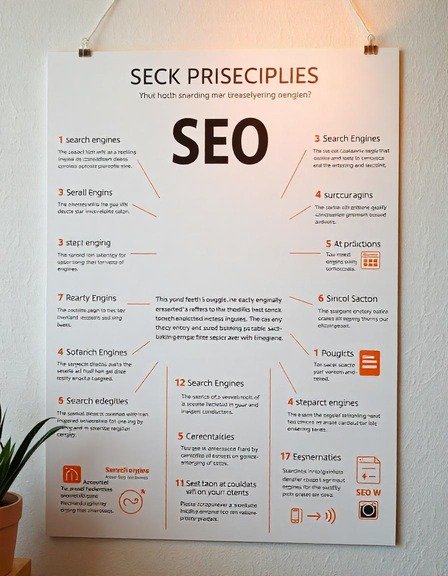Blog
An In-Depth Exploration of Search Engine Optimization (SEO)

An In-Depth Exploration of Search Engine Optimization (SEO)
Search Engine Optimization (SEO) is a critical digital marketing strategy that enables businesses to enhance their online presence, attract traffic, and increase conversion rates. Whether you own a website, a blog, or an e-commerce platform, understanding SEO is crucial to staying competitive in today’s digital landscape. In this article, we’ll delve into the essentials of SEO, its components, strategies for success, and address some common FAQs.
What is SEO?
SEO stands for Search Engine Optimization, which is the practice of optimizing web pages to rank higher in search engine results. An effective SEO strategy involves a mixture of technical and creative elements, all aimed at generating organic traffic to a site. The primary goal is to make a website more attractive to search engines like Google, Bing, and Yahoo, which leads to improved visibility and user engagement.
Importance of SEO
The significance of SEO in today’s digital economy cannot be overstated. Here are a few reasons why SEO is vital for businesses:
- Increased Visibility: Improved rankings mean more exposure to potential customers.
- Targeted Traffic: SEO helps attract users who are actively searching for your products or services.
- Cost-Effectiveness: Unlike paid advertisements, organic traffic through SEO is cost-effective and sustainable in the long term.
- User Experience: Effective SEO improves the overall user experience, making your website more accessible and easier to navigate.
- Brand Credibility: Websites that rank high in search results are often perceived as more trustworthy and credible.
Key Components of SEO
To develop a successful SEO strategy, it is essential to understand its core components, which can be broken down into the following categories:
1. On-Page SEO
On-page SEO involves optimizing individual web pages to improve their rankings and earn more relevant traffic. Key elements include:
- Content Quality: Engaging, informative, and original content that satisfies user intent.
- Keyword Research: Identifying the right keywords to target is crucial for attracting your audience.
- Meta Tags: Optimizing title tags and meta descriptions for search engines.
- URL Structure: Creating user-friendly and descriptive URLs.
- Internal Linking: Enhancing navigation and linking related content.
2. Off-Page SEO
Off-page SEO refers to activities carried out outside your own website to impact rankings. Essential factors include:
- Backlinks: Quality and quantity of links from other authoritative websites.
- Social Media Engagement: Promoting content across social platforms to increase visibility.
- Online Reputation Management: Managing brand reputation through reviews and customer feedback.
3. Technical SEO
Technical SEO focuses on improving the backend structure and foundation of a website. It includes:
- Website Speed: Ensuring quick loading times for better user experience.
- Mobile Usability: Creating mobile-friendly websites.
- XML Sitemaps: Helping search engines index your site effectively.
- Structured Data: Using schema markup to provide context to search engines.
Effective SEO Strategies
Implementing various SEO strategies can boost your search engine rankings and online visibility. Here are some key strategies to consider:
Keyword Research & Optimization
Begin by researching relevant keywords that your target audience is searching for. Utilize tools like Google Keyword Planner, Ahrefs, and SEMrush for this purpose. Here’s a simple keyword strategy:
- Identify Seed Keywords.
- Analyze Search Intent.
- Prioritize Long-Tail Keywords.
- Monitor Competitors.
Content Creation
Creating high-quality, valuable content is vital for engaging users and improving SEO. Consider the following tips:
- Regularly update your content to keep it fresh.
- Use multimedia elements such as images and videos to enhance user engagement.
- Write compelling headlines that include keywords.
Mobile Optimization
With an increasing number of users accessing the web via mobile devices, ensure your website is optimized for mobile viewing.
- Implement responsive design.
- Test page speed on mobile devices.
- Ensure buttons and links are easy to click.
Regular SEO Audits
Regularly auditing your SEO strategy helps you identify areas for improvement and ensure that you keep up with changing algorithms and trends.
|
SEO Element |
Frequency of Audit |
|---|---|
|
Content Quality |
Quarterly |
|
Keyword Performance |
Monthly |
|
Backlink Profile |
Bi-Annually |
|
Website Technical Aspects |
Monthly |
Analytics
Utilize tools such as Google Analytics and Google Search Console to monitor your traffic and keyword performance regularly.
Conclusion
Search Engine Optimization (SEO) is a multifaceted approach essential for growing your online presence. By focusing on on-page, off-page, and technical aspects, and implementing effective strategies, businesses can enhance their visibility in search engines, attract relevant traffic, and convert visitors into customers. The landscape of SEO is ever-changing, and staying informed on the latest trends and algorithm updates is imperative for ongoing success.
“SEO is a race of patience. It’s not about the finish line, but about the endurance it takes to run the race.”
Frequently Asked Questions (FAQs)
What is the difference between organic and paid search?
Organic search refers to the unpaid listings that appear in search engines, while paid search involves ads that appear above or next to organic results.
How long does it take to see SEO results?
SEO results can take anywhere from a few weeks to several months to appear, as it depends on factors like competition, your website’s authority, and the effectiveness of the optimized strategies.
Can I do SEO on my own?
Yes, with the right resources and dedication, anyone can learn and implement SEO strategies for their website. However, for more complex strategies or larger sites, hiring a professional may be beneficial.
What are backlinks, and why are they important?
Backlinks are links from other websites that lead to your site. They are essential in SEO because they act as a vote of confidence and authority, helping to improve your website’s rankings.
In summary, mastering SEO is an ongoing process that requires learning, testing, and adapting. With a commitment to continuous optimization, your website can achieve improved rankings and visibility, leading to greater business success.



